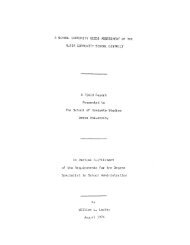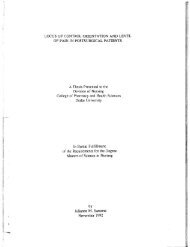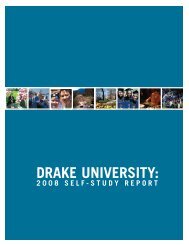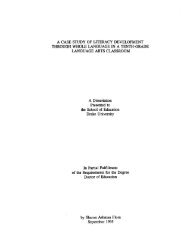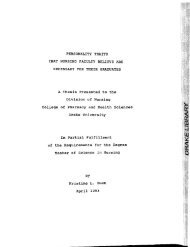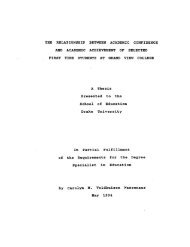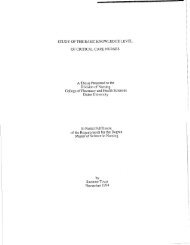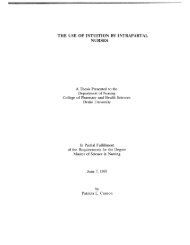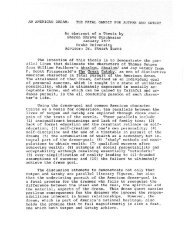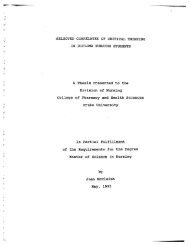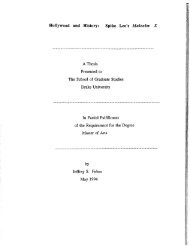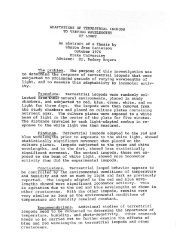LEADERSHIP CHARACTERISTICS OF ... - Drake University
LEADERSHIP CHARACTERISTICS OF ... - Drake University
LEADERSHIP CHARACTERISTICS OF ... - Drake University
You also want an ePaper? Increase the reach of your titles
YUMPU automatically turns print PDFs into web optimized ePapers that Google loves.
experience in a variety of settings could emerge as transformational,<br />
transactional or passive-avoidant leaders, with higher passive-avoidant<br />
leadership styles correlating with increased CEO age at the moderate<br />
significance level. Even as we acknowledge the presence of<br />
transformational behaviors and traits in leaders of all ages and years of<br />
experience, we must also consider the presence of passive-avoidant<br />
behaviors and traits in leaders of all ages and years of experience.<br />
Given the powerful impact of transformational leadership on<br />
106<br />
organizational success, it is encouraging to note that hospitals in need of<br />
recruiting CEOs can consider wide variations in the ages and experiences<br />
of the potential candidates. Individuals of all ages and years of<br />
experience appear to be able to contribute to a hospital's success.<br />
The conclusions of this study offer valuable information as hospitals<br />
prepare for the turnover or retirement of many of their CEOs. Hospital<br />
boards can look to the new CEO without focusing on age, gender, years of<br />
experience, or leadership training to determine the best fit. They can,<br />
more wisely, focus on the transformational, transactional and passive-<br />
avoidant tendencies of the prospective CEO to help guide their decision-<br />
ma king process.<br />
Limitations of the study<br />
One of the limitations of this study was the ability of the CEO to<br />
select how many and which associates to participate in the research.



